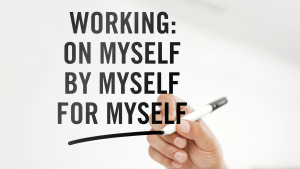Panic attacks can be a debilitating experience, making it difficult for you to carry out your daily activities. Panic attacks are often characterized by a sudden and intense feeling of fear or anxiety that can be accompanied by physical symptoms like sweating, shaking, and palpitations. Although panic attacks are relatively common, they can be managed with the right techniques. In this article, we will discuss practical tips to stop a panic attack.
Tips to Stop a Panic Attack

Breathe
Breathing is an essential technique for managing panic attacks. When you feel a panic attack coming on, take deep breaths, and exhale slowly. This technique helps to slow down your heart rate, which is often accelerated during a panic attack. Breathing can also help to reduce feelings of anxiety and tension. It’s best to practice this technique regularly so that you can quickly access it when you need it.
When experiencing a panic attack, a helpful breathing technique is called “diaphragmatic breathing” or “belly breathing”. Here are the steps:
- Find a quiet place where you can sit or lie down comfortably.
- Place one hand on your chest and the other hand on your stomach.
- Take a slow, deep breath through your nose, filling your lungs and feeling your stomach rise. Your chest should remain relatively still.
- Hold your breath for a few seconds.
- Exhale slowly through your mouth, feeling your stomach fall and your hand on your stomach move inwards.
- Repeat this cycle of slow, deep breaths, focusing on the feeling of your breath moving in and out of your body.
The goal of diaphragmatic breathing is to slow down your breathing and increase your oxygen intake, which can help to reduce the symptoms of a panic attack. It’s important to remember that everyone’s experience with panic attacks is different, and what works for one person may not work for another. If you find that diaphragmatic breathing isn’t effective in managing your panic symptoms, it may be helpful to speak with a mental health professional for additional support and guidance.
Focus on Your Senses
Focusing on your senses can help to distract you from the overwhelming feelings of a panic attack. This technique involves paying attention to the sensations around you, like the sound of birds chirping, the feeling of the wind on your skin, or the scent of freshly cut grass. Engaging your senses can help you to stay grounded and present in the moment, reducing the intensity of your panic attack.
Practice Mindfulness
Mindfulness is a technique that involves paying attention to the present moment without judgment. When you practice mindfulness, you learn to accept your thoughts and feelings without trying to change or resist them. This technique can be especially helpful during a panic attack because it helps you to observe your thoughts and feelings without becoming overwhelmed by them.
Use Positive Self-Talk

Positive self-talk involves speaking to yourself in a positive and encouraging way. During a panic attack, it’s common to have negative thoughts and beliefs. For example, you might think, “I can’t handle this,” or “I’m going to die.” These thoughts can make your panic attack worse. Instead, try to replace negative thoughts with positive ones, like “I can get through this,” or “I’ve been through this before, and I know I can handle it.“
Try Progressive Muscle Relaxation
Progressive muscle relaxation is a technique that involves tensing and relaxing different muscle groups in your body. This technique can help to reduce feelings of tension and anxiety, which are common during a panic attack. To practice progressive muscle relaxation, tense a muscle group, like your shoulders or arms, for a few seconds, and then release the tension slowly. Repeat this process with different muscle groups in your body until you feel more relaxed.
Seek Professional Help

If you’re struggling with panic attacks, it’s essential to seek professional help. A mental health professional can help you to develop personalized coping strategies to manage your panic attacks. They can also provide panic attack therapy and medication if necessary. Don’t hesitate to reach out for help if you need it.
What Not To Do During a Panic Attack
During a panic attack, it’s important to avoid certain behaviors that can exacerbate the symptoms or make you feel worse. Here are some things to avoid during a panic attack:
Fighting the panic attack: Trying to resist or fight the panic attack can make it worse. Accepting that you are experiencing a panic attack and reminding yourself that it will pass can help you to stay calm.
Avoiding the situation: Avoiding the situation that triggered the panic attack can reinforce your fear and make you more anxious in the long run. Instead, try to face your fears gradually and with the help of a therapist.
Holding your breath: Breathing exercises can help to calm your body and reduce the severity of panic attack symptoms. Holding your breath or taking shallow breaths can make the symptoms worse.
Using drugs or alcohol: Using drugs or alcohol to cope with a panic attack can be dangerous and may lead to addiction. Instead, talk to your doctor about safe and effective treatments for panic disorder.
Self-criticism: Blaming yourself for having a panic attack or feeling ashamed can increase your anxiety and make it harder to cope. Be kind and compassionate to yourself, and seek support from loved ones or a mental health professional.
Remember that panic attacks are treatable, and with the right support and treatment, you can learn to manage your symptoms and live a fulfilling life.
Common Questions About Panic Attacks
What causes panic attacks?
The exact cause of panic attacks is unknown, but genetics, brain chemistry, and life stressors can contribute to their development.
What are the symptoms of a panic attack?
The symptoms of a panic attack can vary, but they often include rapid heartbeat, sweating, shaking, shortness of breath, and a feeling of impending doom.
How long do panic attacks last?
Panic attacks usually last for several minutes, but they can last up to an hour or longer. It’s common for people to experience multiple panic attacks over time.
Can panic attacks be prevented?
It’s difficult to prevent panic attacks entirely, but there are techniques you can use to manage them, such as deep breathing, mindfulness, and muscle relaxation.
When should I seek professional help for my panic attacks?
If your panic attacks interfere with your daily life or causing you significant distress, it’s important to seek professional help. A mental health professional can provide therapy and medication to help manage your symptoms.
Are panic attacks treatable?
Yes, panic attacks are treatable. With the right techniques and professional help, you can learn to manage your panic attacks and improve your quality of life.
Can medication help with panic attacks?
Yes, medication can help manage the symptoms of panic attacks. Antidepressants and anti-anxiety medications are commonly used to treat panic attacks. However, medication should be used in conjunction with therapy and other coping techniques.
Panic attacks can be scary and overwhelming, but they can be managed with the right techniques. Remember, everyone’s experience with panic attacks is different, so it’s important to find the best techniques for you. With practice and persistence, you can learn to manage your panic attacks and live a more fulfilling life.



